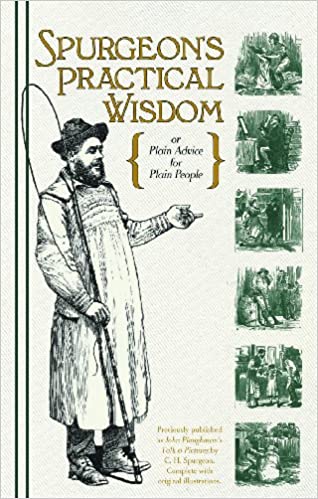This beautifully produced book with the original illustrations is a collector’s item. It contains articles written by C. H. Spurgeon and published in The sword and trowel, under the pseudonym ‘John Ploughman’. As John Ploughman, Spurgeon plays the part of a wise farmhand and dispenses ‘plain advice for plain people’, as the subtitle puts it.
The subjects covered include such things as the family, marriage, debt, temptation, the tongue, greed and the like. John Ploughman points out that: ‘He who rides in the carriage may yet have to clean it’, and ‘The thought that we may ourselves be one day under the window should make us careful when we are throwing out our dirty water’ (pp. 75-76).
He advises that ‘If a girl has got a few shillings to spare, let her buy a good bit of flannel for the winter, before she is tempted with bright-looking but useless finery’ (p.90), and he draws the attention of those tempted to hoard to the fact that ‘a tight fist is apt to get the rheumatism’ (p.307).
He has words of wisdom for those prone to finding fault with others, ‘There are wonderful people about…[who] could manage the nation, and yet can’t keep their boys out of the farmer’s orchard’ (p.194). He sighs, ‘O that the man had a mouth big enough to say all he has to say at one go, and have done with it’ (p.175).
He instructs the married man, that ‘if a three-legged stool come flying through the air, he must be thankful for such a plain token of love from the woman of his choice’ (p.238). There is a strong emphasis on the dangers of alcohol, and the reminder that ‘water is the strongest drink, it drives mills. It’s the drink of lions and horses, and Samson never drank anything else’ (p.133).
Spurgeon says, ‘I should not choose to have my homely book pulled to pieces by fellows who have not the honesty to read it’ (p.125). Well, I have read it; and while there is no way I wish to pull it to pieces, as it does contain much practical wisdom, I don’t think Spurgeon’s attempt at the countryman’s language in the second half of the 19th century travels well into the first half of the 21st century.
If it’s plain advice for the plain people of today that you are looking for, this is not the book; it is just too quaint. But it is a collector’s item!









